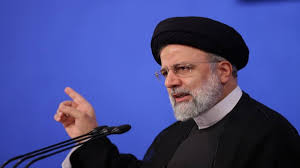
Iranian President Ebrahim Raisi is set to visit Pakistan on Monday for talks aimed at improving relations following recent deadly cross-border attacks. The visit comes as both nations seek to ease tensions that escalated after missile strikes earlier this year in the Balochistan region, which is shared between Iran and Pakistan.
President Raisi will lead a high-level delegation, including the foreign minister and a significant business group, according to Pakistan’s foreign ministry. The January missile strikes in Balochistan aggravated regional tensions already heightened by conflicts like the Israel-Hamas war.
The strikes targeted an anti-Iran group in Pakistan, leading to retaliatory actions. Pakistan conducted a raid on militant targets in Iran’s Sistan-Balochistan province. Historically, both countries have accused each other of harboring militants.
Recent diplomatic efforts, including a visit by Tehran’s foreign minister, have aimed to improve dialogue and establish communication channels between the two nations. The unrest in Sistan-Balochistan involves issues such as cross-border smuggling and rebel activities.
During his visit, President Raisi will also meet provincial leaders in Lahore and Karachi. The discussions will focus on enhancing cooperation in various sectors, including trade, energy, connectivity, agriculture, and people-to-people contacts.
One key area of cooperation is the Iran-Pakistan gas pipeline project, which Pakistan sees as a solution to its long-standing power crisis. Despite challenges and international sanctions, efforts are underway to move forward with the pipeline project, crucial for Pakistan’s energy needs.
However, the project’s progress faces scrutiny and potential sanctions from the United States, which has expressed reservations about the pipeline. Washington’s stance adds a layer of complexity to the regional dynamics and the future of Iran-Pakistan relations.
President Raisi’s visit signals a pivotal moment in diplomatic efforts to strengthen ties and address mutual challenges, marking a significant step towards regional stability and cooperation.
Sources By Agencies


